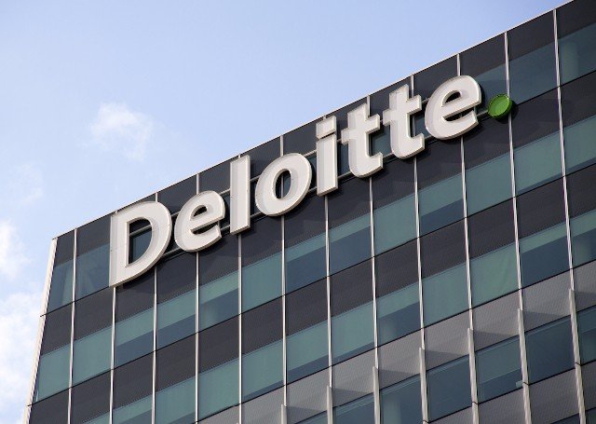Auditing and accounting firm, Deloitte Ghana, is urging the government to focus on reducing the total debt to Gross Domestic Product ratio to below 60% in the medium to long term.
This is considered the threshold for sustainable debt levels.
In its review of the 2023 Budget, it expressed worry about the rising domestic debt.
The government launched a Debt Exchange Programme on December 5, 2022 to restructure the country’s debt as a prerequisite for an International Monetary Fund programme. This is expected to affect the returns of pension and insurance funds.
Deloitte Ghana said whilst government has tended to focus more on the international capital market to raise borrowed funds, the domestic component of the public debt has also trended upwards.
“It is important to note that the increasing domestic debt limits the amount of credit available to private businesses as banks tend to lend more to the government, which is considered much lower in terms of risk profile as compared to the private sector. This ultimately results in higher lending rates for private sector businesses to compensate for their higher default risk”, it explained.
To address this challenge, it urged the government to further reduce its reliance on the domestic debt market by pursuing innovative revenue generation policies whilst adopting effective measures to boost our foreign exchange reserves and stabilise exchange rates in a bid to reduce the external debt accumulation resulting from depreciation, adding, “commercial banks should also be incentivized to increase lending to the private sector”.
Debt Exchange Programme could reduce government interest expense
On the Debt Exchange Programme, it said its success will result in some cash retention for government as it would have primarily deferred the commitment to settle maturing investments within the short term.
Government may also, therefore, be able to channel the cash retained through this deferral to other planned initiatives intended to expand the productive capacity of the economy.
The new bonds will be set at annual coupon rates that are considerably lower than the previous coupon rates contracted. In addition, the new rates are set to be graduated
from 0% in 2023 to 5% in 2024 and further up to 10% from 2025 onwards.
This Deloitte Ghana said if successfully implemented under these terms, the Domestic Debt Exchange programme will result in reduction in interest expense for Government and
also lead to improved cash flows, particularly within the short to medium term.
Overall, it said this will contribute to moderating government expenditure and improving the budget deficit.
Latest Stories
-
CSA blacklists 40 loan apps for harassment and data abuse
8 minutes -
Armwrestling and Fire Service forge development partnership
43 minutes -
Fuel prices to fall significantly from June 1, 2025
1 hour -
Pan-African Progressive Front rolls out plan to unite Africa
1 hour -
Muslim women urged to help curb substance abuse in Zongo communities in Aflao
2 hours -
2025 HitzFMRepUrJersey records massive success
2 hours -
Death toll from Nigeria flash floods rises to 151
3 hours -
Kumasi, Tamale airports extend operational hours
3 hours -
At least seven dead after two Russian bridges collapse
3 hours -
Man United sign Matheus Cunha from Wolves
3 hours -
Ofori-Atta faces INTERPOL Red Notice if he defies OSP deadline
3 hours -
Thomas Partey Tournament returns to unearth Ghana’s next football stars
3 hours -
Police arrest 2 suspects in gruesome murder at Tema
4 hours -
38 suspects arrested as IGP orders raids on galamsey hotspots in 3 regions
4 hours -
BlowChem announces price reductions on beverages, effective June 1
6 hours

